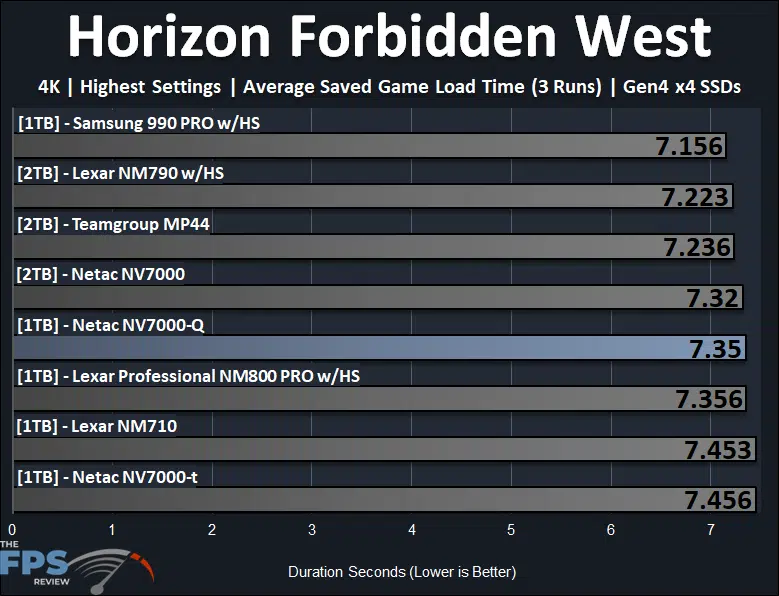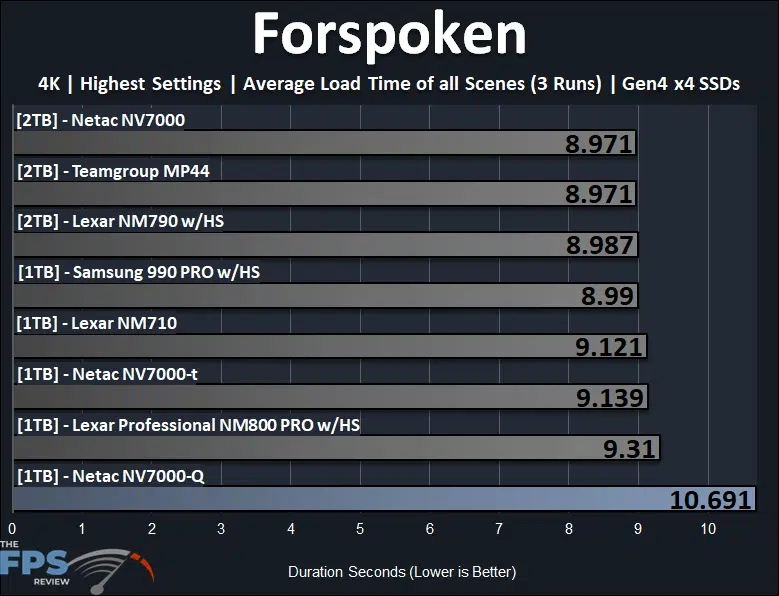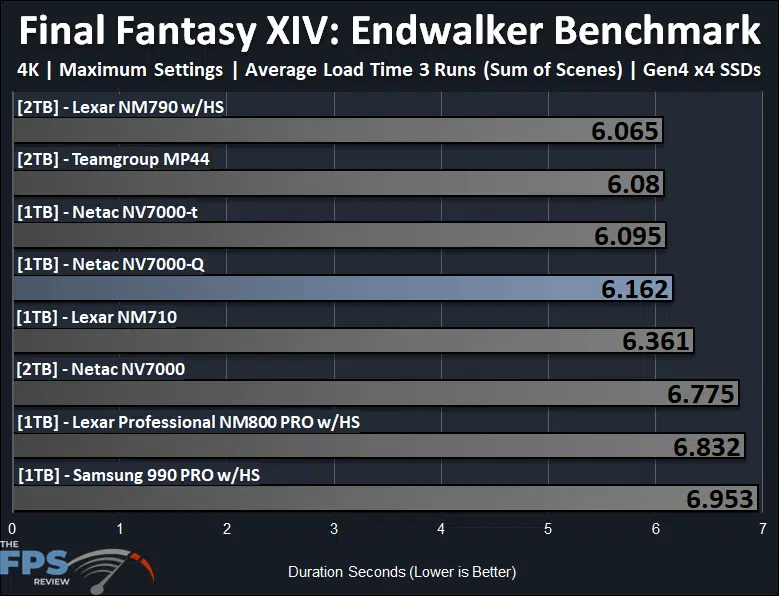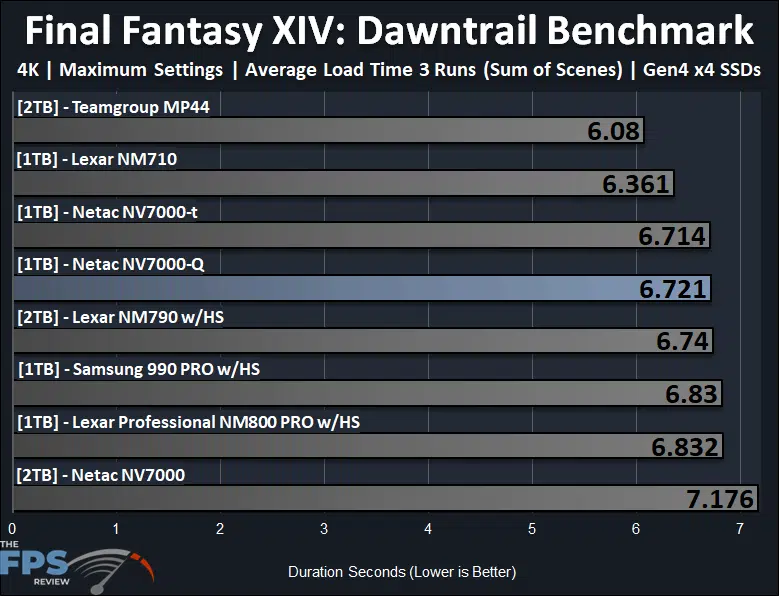Game Load Time Performance
Horizon Forbidden West (DirectStorage)
We are using the full retail game Horizon Forbidden West, with patch 1.0.43.0. This game supports DirectStorage for saved game load times. We are using an AMD Radeon RX 6800 16GB video card for testing and all components are shown to support DirectStorage. We enable the highest graphics settings in the game at 4K for testing. We will show loading a saved game file and how long it takes to load into the game. All results are performed manually with a stopwatch.

In the graph above, we are testing the time it takes to load a saved game, this directly tests DirectStorage on the SSD and how long it takes to load a saved game. The Netac NV7000-Q 1TB PCIe Gen4x4 NVMe SSD takes 7.35 seconds, which is an average load time among the other SSDs. In fact, the Netac NV7000-Q loads our saved game 1.4% faster than the Netac NV7000-t. The Netac NV7000-Q is on par with the NV7000 on game load time here. The Samsung 990 PRO is the fastest, but also again a much more expensive SSD, the Netac NV7000-Q has a respectable result in this game.
Forspoken (DirectStorage)
We are using the full retail game Forspoken, which supports DirectStorage to test game loading time. Forspoken was released on January 24th, 2023, on the PC and uses the Luminous Engine. We are using an AMD Radeon RX 6800 16GB video card. We enable the highest graphics settings, including Ultra High Texture Memory, and run at 4K. We use the built-in benchmark and report the scene load times. We add the sum of all seven scene load times and run the benchmark three times. We then take the average of the three sums from each run. We graph the average result.

While the Netac NV7000-Q 1TB PCIe Gen4x4 NVMe SSD had a respectable result in Horizon Forbidden West, the same wasn’t true for Forspoken, which also utilizes DirectStorage. It is possible both games utilize a different revision of DirectStorage, but regardless, this was the result, and we tested and re-tested several times to make sure. The Netac NV7000-Q falls behind the Netac NV7000-t by 15% and behind the Netac NV7000 by 16%.
This result did take us by surprise, we made sure to format, run TRIM, clear system files, and reboot several times, and no matter what, it did provide consistent results. The Netac NV7000-Q 1TB PCIe Gen4x4 NVMe SSD was the slowest in-game load times in Forspoken’s testing. This game does give accurate results, as it shows load times per scene, nothing has to be calculated by hand or by stop-watch, it is all in-game, and therefore very accurate reporting of load times.
Final Fantasy XIV: Endwalker Benchmark
We use the Final Fantasy XIV: Endwalker Benchmark which benchmarks the load times of several game scenes. The benchmark calculates the sum load time of the scenes and reports the number. We run the benchmark three times, and take the average of the load times. This provides consistent, objective game load testing data we can use for comparison in a game scenario outside of DirectStorage. This benchmark uses DX11.

Final Fantasy XIV: Endwalker benchmark does not use DirectStorage and offers a unique perspective on pure game loading performance, and also uses accurate timers to provide accurate results. In this DX11 benchmark, the Netac NV7000-Q 1TB PCIe Gen4x4 NVMe SSD provides an above-average load time of 6.162 seconds. Here we find the load times only 1% slower than the Netac NV7000-t and 9% faster than the Netac NV7000 offering a good bump in loading speeds.
Final Fantasy XIV: Dawntrail Benchmark
We are now including the Final Fantasy XIV: Dawntrail Benchmark as well which benchmarks the load times of several game scenes. This new and updated benchmarks utilizes a new updated engine with updated and improved graphics textures and fidelity. The benchmark calculates the sum load time of the scenes and reports the number. We run the benchmark three times, and take the average of the load times. This provides consistent, objective game load testing data we can use for comparison in a game scenario outside of DirectStorage. This benchmark uses DX11.

